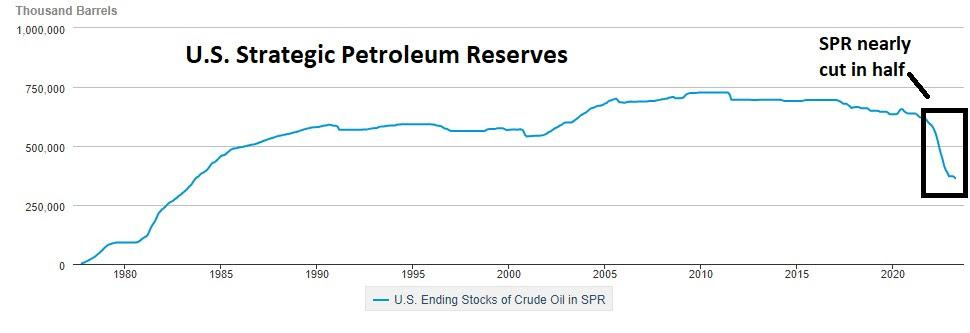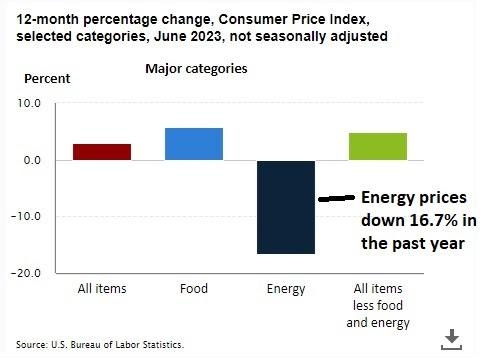Let's start the week by taking a look at a couple of key commodities.
Oil
Despite the globally coordinated anti-oil policies, which have ensured a structural supply deficit for the foreseeable future, oil prices have halved over the past year. We can attribute plenty of this decline to the Biden administration's drawdown of the Strategic Petroleum Reserves (SPR, chart below) . . .
We can also attribute the oil price decline to the recession fears that the Fed explicitly induced over the past sixteen months. Make no mistake, it's taken every bit of the above to reverse the 9% headline inflation of a year ago. This chart from the BLS says it all . . .
But the tide is turning. Not only has the Fed backed off with the constant threats to the economy, they are near the end of this iteration of tightening. The petrodollar has been challenged, recently (which puts upward pressure on dollar-denominated oil) and it's time to restock the SPR (the U.S. government will be taking supply out of the market).
With these forces at work, as you can see in the first chart, oil has broken out of the downtrend of the past year.
Copper
Similarly, copper is in a structural supply deficit, but also with tailwinds of a structural demand boom from a very well funded, and globally coordinated electric vehicle/renewable energy agenda.
Yet, copper prices have crashed as much as 35% over the past year, for reasons one can only assume are related to Fed-induced (and global rising interest rate-induced) recession fears.
With the above in mind, here's what Freeport McMoran's CEO (the second largest copper producer in the world) said about the copper market this past week: "The ability of the copper industry to meet this rising demand is a major challenge . . . we believe prices will need to rise to incentivize new supplies of copper."
On the latter, he has said in the past that even if prices doubled overnight, "we couldn't add new production of significance for a number of years . . . because permitting alone on new projects is six to eight years out, due to the ramp in environmental hurdles."








